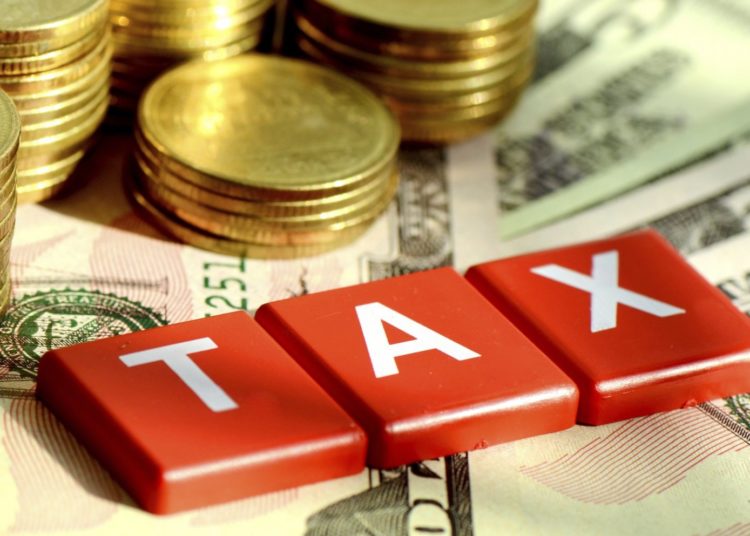When starting a business, one of the things that most small businesses in Nigeria do not really think about is paying taxes. While some may seem to be unaware of taxes, many voluntarily omit the payment of taxes in their operations and budgets.
Studies show that close to 80 per cent of small and micro businesses in Nigeria shy away from paying taxes, a situation the government has over the years tried to rectify.
While business owners often struggle to understand why they should contribute to an administration which appears to throw frequent obstacles in their way, taxation is a certainty with penalties that hurt businesses when they are caught evading tax.
Business taxation is essentially the tax businesses pay to the government as part of their operations. It is important that every business pay taxes, whether it falls under sole proprietorship, partnership, limited liability or a corporation. Your business is responsible for abiding by the tax regulations provided by the country.
As long as your business is registered, you are expected to remit a certain percentage of profit to the government.
In Nigeria, all persons in employment, individuals in business, non-residents who derive income from Nigeria, and companies that operate in Nigeria are mandated to pay tax. The tax regime in Nigeria is administered by the three tiers of government – Federal, State and Local government taxes.
Federal government taxes include- Companies Income Tax (CIT), Value Added Tax (VAT), Capital gain tax, stamp duty tax, education tax, petroleum profit tax amongst others.
State government taxes include- Personal Income Tax, Business Premises Tax, Development levy, otherwlocal government taxes include- levies and rates.
Businesses, whether small or micro have to figure out which taxes is applicable to the business that they are involved so as to enable them calculate the correct taxes to pay.
Each tax comes with its percentages thus, how much a business makes a year can also determine how much to remit to the government. Also with the new Finance act which excludes some micro businesses from some taxes, you need to know the taxes to pay, how much, and the penalties when the taxes aren’t paid on time.
Filing For Tax
The first thing a business has to do is to prepare your company’s accounts for the financial year and get an audited financial statement.
With the automation of the tax filing system, it has over time become easier to file taxes as businesses can now log onto the websites of the federal or in some cases the state revenue agencies to file in their taxes.
Businesses have to provide all documents needed to file their tax returns, i.e. CAC document, directors statement and a complete Type C form. After filing in the required documentation, the next process is to pay the amount to any banks designated for tax collection.Here Are Some Taxes That Businesses Are Expected To File:
Companies Income Tax
This is a tax chargeable on all companies, other than Companies engaged in petroleum operations registered in Nigeria. It is an annual tax on the profits of registered companies, which profits must accrue in, be derived from, brought into, or received in Nigeria. However, for companies whose annual gross turnover of not more than N25 million would be completely exempted from paying CIT subject to timely filing of companies income tax returns.
Capital Gains Tax
This is a 10 per cent tax imposed on Capital Gains arising from a sale, exchange or other disposition of properties known as chargeable assets. Capital gains are the profits that an investor realizes when he or she sells the capital asset for a price that is higher than the purchase price. Capital gains taxes are only triggered when an asset is realized/sold.
Education tax
This is a tax chargeable on all companies registered in Nigeria at chargeable profits as contribution to the Education Tax Fund. All registered companies in Nigeria are required to pay a percentage of their assessable profit into an Education Tax Fund. The tax is charged at two per cent.
Value Added Tax
This is a tax payable by the consumer at 7.5 per cent. It is a tax imposed on the supply of goods and services. Although companies do not pay VAT, they are mandated by the government to collect the VAT from consumers and then remit to the relevant tax body. So in essence the business is an agent for the government for the purposes of collecting VAT.
Personal Income Tax
This is a tax payable by all individuals and registered businesses and partnerships except those registered under Part A of Companies and Allied Matters Act 1990 (incorporated companies). The State Inland Revenue Service administers the tax. This tax is however relevant to your business even if you are a registered company, because one of the obligations of companies is to collect what is known as Pay as You Earn (PAYE) from their employees’ salaries and then remit to the state tax body.
Withholding Tax
This is an advanced payment of income tax deducted at source of specific transactions. The recipient of the income is entitled to utilise the withheld tax credit note or receipt, against the final tax obligations. For instance, when paying dividends withholding tax is charged on the amount.





